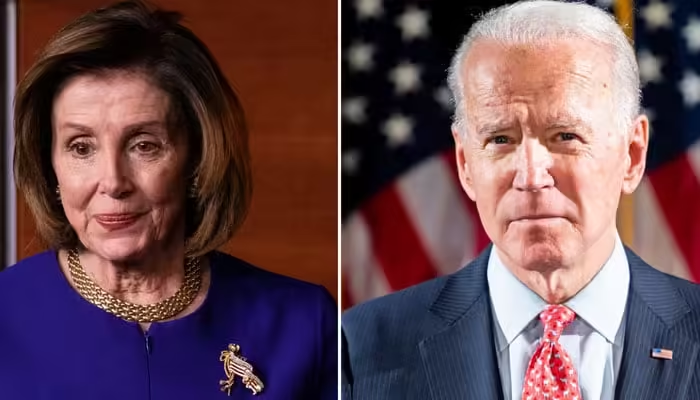In a dramatic turn of events, Microsoft recently fired two employees who openly protested against the company’s provision of artificial intelligence-based technology to the Israeli military. The protests have sparked global attention, raising serious questions about corporate responsibility, the ethics of technology, and the role of businesses in geopolitical conflicts. These employees voiced their opposition at a company event celebrating Microsoft’s 50th anniversary, accusing the tech giant of being complicit in fueling violence in Palestine.
The Protest: Accusations of Complicity in Genocide
At the heart of the protests was Ibtihal Abu Saeed, a female engineer at Microsoft, who raised her voice during an anniversary event, publicly confronting the company’s AI CEO, Mustafa Suleiman. In a passionate outburst, she stated, “You claim that you are concerned about the use of AI, but Microsoft sells AI weapons to the Israeli army, 50,000 people have died, and Microsoft is fueling this genocide in the region.”
Her comment was a direct criticism of Microsoft’s involvement in providing AI-based technology to the Israeli military, which has been accused of using such technology in military operations in Palestine. Ibtihal’s strong words reflect growing global discontent with tech companies contributing to military efforts that many consider unethical.
The Fired Employees: Ibtihal Abu Saeed and Vanya Agarwal
In the aftermath of the protest, reports indicate that Ibtihal Abu Saeed was fired by Microsoft for allegedly disrupting the event and attempting to gain fame from the protest. Microsoft accused her of creating a scene at a company celebration meant to mark the tech giant’s success and long-standing history.
Another employee, Vanya Agarwal, was also let go after participating in the protest. According to reports, she had been outspoken about her opposition to the company’s actions. However, Microsoft stated that Vanya Agarwal had already resigned from her position just five days before her planned leave. Despite this claim, the timing of her resignation, coupled with her protest, raised questions about the company’s handling of the situation.
Microsoft’s Stance: Right to Protest vs. Business Disruption
While Microsoft maintains that employees have the right to protest, the company drew a line when it came to business disruption. A spokesperson for Microsoft stated that while the company respects employees’ freedom of expression, actions that disrupt company events or operations are unacceptable. This stance has been met with criticism from both employees and external observers, who argue that the company’s decision to fire the protesters underscores its reluctance to address the ethical implications of its business dealings.
The company’s response highlights the growing tension between corporate interests and social activism, particularly when it involves high-profile tech companies that are often criticized for their role in global conflicts.
A Pattern of Protests and Firings Across Tech Companies
The protests against Microsoft are not an isolated incident. In the past, several employees at other major tech companies, including Google, have faced similar fates for speaking out against their employers’ involvement in military contracts. For instance, Google employees have protested the company’s involvement in the Pentagon’s Project Maven, which involved using AI for military surveillance, leading to the departure of several employees.
These incidents highlight the broader issue of tech companies’ involvement in military and government contracts. As AI and other advanced technologies continue to be integrated into military operations, many workers within these companies are grappling with the ethical implications of their work.
The Global Debate: Technology, Ethics, and Corporate Responsibility
The protest against Microsoft has fueled a larger debate about the role of technology companies in global conflicts. As AI and machine learning become increasingly powerful tools, the potential for their use in warfare raises serious ethical concerns. Critics argue that companies like Microsoft, Google, and others should take greater responsibility for how their technologies are used, particularly when they are being sold to military forces involved in controversial conflicts.
Furthermore, the use of AI in military applications is not just limited to surveillance or weaponry. AI can be used to enhance targeting, improve drone operations, and streamline logistics in warfare. As these technologies become more advanced, the line between tech innovation and ethical responsibility becomes increasingly difficult to define.
The Call for Accountability
The actions taken by Microsoft to fire employees who protested against its AI dealings with the Israeli military have sparked a broader conversation about corporate accountability. Activists and critics argue that tech companies must be more transparent about their dealings with military organizations and take a firmer stance against the use of their technologies in conflict zones where human rights violations are prevalent.
For many, this protest serves as a reminder that technology, while offering immense potential for innovation, must be used responsibly. The role of tech companies in shaping the future of warfare and surveillance has never been more critical, and with it comes a heightened sense of corporate responsibility.
The Battle Between Corporate Interests and Ethical Responsibility
The case of Ibtihal Abu Saeed and Vanya Agarwal represents more than just a protest against Microsoft. It signifies the growing conflict between corporate interests and the moral responsibility of businesses to ensure their products are not used to perpetuate violence or injustice. As the conversation around AI technology’s role in military operations continues, the pressure on tech giants to reconsider their business practices will only intensify.
This unfolding story serves as a crucial reminder that the future of technology, ethics, and corporate responsibility are deeply intertwined, and decisions made today will have lasting impacts on global human rights and societal well-being.



